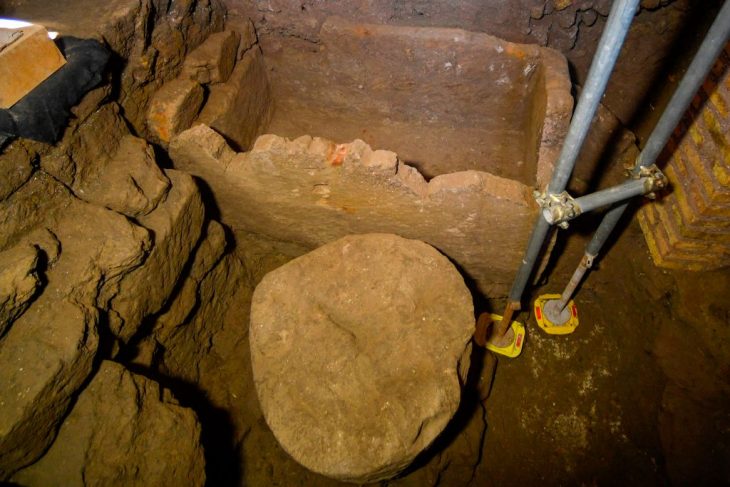Introducing Rakewell, Apollo’s wandering eye on the art world. Look out for regular posts taking a rakish perspective on art and museum stories
Your roving correspondent raised an eyebrow at the news that the tomb of Romulus, the legendary founder of Rome, has been discovered at the north-west corner of the Roman Forum. It came as something of a relief to find, after a little more digging, that several Italian archaeologists were making more responsible claims for the stone tomb and circular altar dating from the 6th century BC. As Alfonsina Russo, director of the Colosseum Arachaeological Park, has said, ‘This is not the tomb of Romulus, but is a place of memory where the cult of Romulus was celebrated, a cenotaph.’

An ancient tomb thought to belong to Rome’s founder Romulus is pictured on February 21, 2020 at the Curia-Comitium in the Roman Forum of Rome, during its presentation to the media. Photo by FILIPPO MONTEFORTE/AFP via Getty Images
As the sons of a Vestal Virgin and (accounts vary) the god Mars, the baby Romulus and his brother Remus are said to have been suckled by a kindly she-wolf before they were reared on a longer-term basis by an altruistic shepherd and his wife. While Rakewell rather hopes that excitable sub-editors will one day be hailing the discovery of vulpine remains, in the 21st century we could do worse than exercise the same kind of scepticism shown by a Roman writing towards the tail end of the first century BC.
While not going as far as to doubt that the twins existed, the Roman historian Livy offers an alternative account of their divine origins and throws cold water on the question of whether a wolf really played wet nurse. He suggests instead that the shepherd’s wife was something akin to a pastoral sex worker and thus called a ‘she-wolf’ by the neighbours (Ab Urbe Condita, I.iv).
Rakewell fears to tread where so many have stumbled, but does wish that sub-editors could keep a cooler head. Or is fake news just a modern form of myth?
Got a story for Rakewell? Get in touch at rakewell@apollomag.com or via @Rakewelltweets.













![Masterpiece [Re]discovery 2022. Photo: Ben Fisher Photography, courtesy of Masterpiece London](http://zephr.apollo-magazine.com/wp-content/uploads/2022/07/MPL2022_4263.jpg)
‘Like landscape, his objects seem to breathe’: Gordon Baldwin (1932–2025)